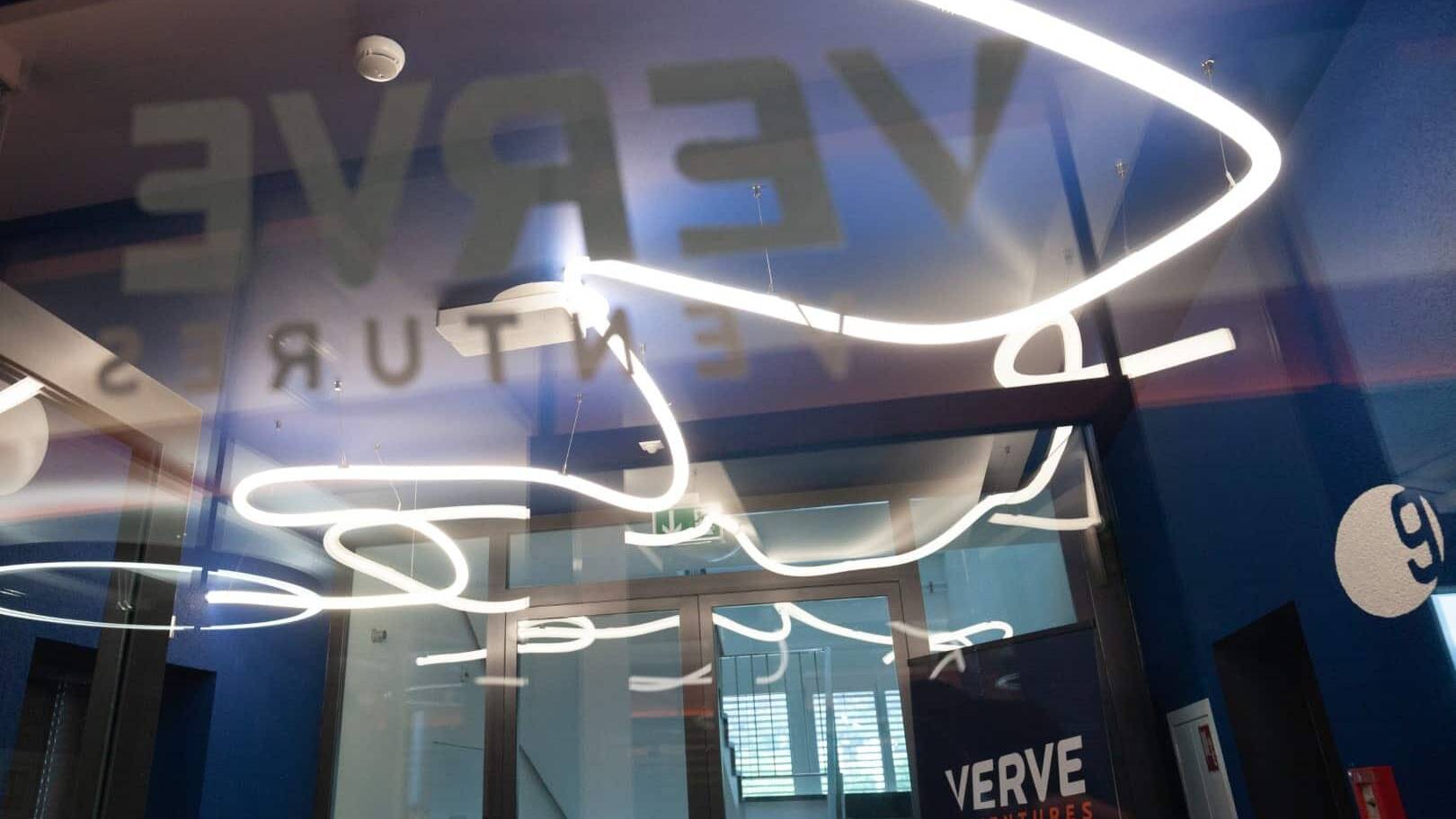Fractory’s founders set out to eliminate cumbersome administrative tasks in metal manufacturing. They have built the most exact and fastest pricing platform in the market, and expanded from the Baltics to the UK. Now they are eying the US, Italy and France. In this interview, CEO Martin Vares explains what gives Fractory in the large but fragmented metal manufacturing market an edge.

Co-founder and CEO, Fractory
Martin Vares co-founded Fractory in 2017. For engineering companies in need of custom laser-cut parts, the Fractory manufacturing marketplace provides a one-stop shop to discover, compare, and fulfill production orders regardless of batch size. For companies with specialized laser-cutting equipment, Fractory optimizes use of available capacity to accelerate ROI of expensive machinery investments.
You co-founded Fractory in 2017. Could you tell me about your background?
I am a mechanical engineer by training. I studied at the Tallinn University of Technology in Estonia. My first job involved making the engineering department of the company I was working at more efficient. I made other engineers work faster by automating engineering tasks. The spark was ignited – this experienced showed me that things do not always have to be the way they have been.
How did you start working with Fractory’s other co-founders?
There are three of us. Joosep Merelaht’s background is in sales and economics. We were in a band together when we were younger and stayed in touch afterwards. Once we were discussing the issues encountered in my work and the idea started for formulate. After that, the idea stuck. After our first public appearance – a hackathon, which we won – I started talking to my other long-time friend Rein Torm, who was working at Skype at the time, and went on to become our third co-founder and CTO. The match between the three of us was pretty much instant and we covered all the areas needed to get the business started.
What problem did you set out to solve?
In manufacturing, there are tonnes of different providers in different markets. If there is a part that you cannot produce yourself, you start writing emails to those companies. It can take days or even weeks to get a simple order into production. The people assigned these tasks are well-educated, experienced and know what they are looking for, but they have to write emails and make phone calls just to find that one part. In my view, all of this could have been done by a computer – which is what we set out to do. We wanted to eliminate the administrative tasks around finalising production orders and take it a step further by solving the problem for both sides of the market: customers and suppliers. Customers not only have to find the right suppliers, but suppliers have to respond to all those emails. If the customer reaches out to ten companies, ideally all ten will respond. Yet the customer will obviously choose just one company, so nine of them will have done a basically meaningless job.
How does Fractory connect customers with suppliers?
Our platform gives customers the instant price of the products available on the market, which enables them to make a decision there and then. After that, the system chooses the most suitable supplier based on the order’s specifics and presents it to one or a few suppliers in our system. When they visit our platform, suppliers see suitable orders, choose the ones they want, and can start working on them straight away.
“We have reached the point where our volumes are high enough to create efficiency in the market that otherwise would not be there.”
What value does your platform offer customers?
We have reached the point where our volumes are high enough to create efficiency in the market that otherwise would not be there. We are pooling all the orders so that suppliers can take orders – those involving the same materials, for example – together. This reduces the unit cost and makes the final price lower for the customer. What brings our customers back the most is that we take away the worry about the manufacturing process. If an order goes through Fractory, we take care of everything; we ensure the quality, we ensure the transportation, and if something goes wrong during production then we manage it. The customer simply gets the parts at the specified time, without having to worry about what happens in between. We also pull together best practices from the industry and work closely with our suppliers to ensure that everything is done to the highest quality.
What makes Fractory stand out from its competitors?
We are all working on the same paradigm – cloud manufacturing – but what makes us different, and one of the platforms with the highest rate of returning customers, is that we put considerable emphasis on the technology. There is no point in hiring lots of people and doing the same job with those people merely acting as middlemen; the point is to actually use the technology in a purposeful manner. This has enabled us to be the most exact and fastest pricing platform on the market. As we move forward, more benefits stem from it – such as the aggregation part mentioned above, which brings down prices for customers, but does not take away anything from suppliers. Rather, it gives to them; they can get more orders of a similar material or similar production method. This makes them more efficient and their machinery is running more hours of the day. Eventually, everyone wins. This win-win focus, combined with our emphasis on technology, is what makes us different.
What is the specific value of Fractory’s easy-to-use interface?
Some platforms give you options for everything you could possibly imagine, but what that means is that 90% of the time they are getting in your way. If it is a complicated order, it still makes more sense to talk to a human representative, which we can provide as well. We have engineers and account managers who can help you with anything. On the platform, we take an Apple-like approach: make everything as simple and intuitive as possible. We make everything as easy as possible for the 80% and, for the remaining 20%, solve it in another way, rather than having a one-size-fits-all approach.
How does Fractory fit the wider drive towards greater efficiency in manufacturing?
The market has been moving towards more digitalised solutions. Our platform – essentially, a digitalised manufacturing communications tool – is exactly where manufacturing is going. Research by scientists shows that cloud manufacturing is the future of manufacturing. Yet if we look at the digital solutions available, they are mostly internal tools, or something that automates a company’s internal processes, from handling inventory better to making assembly lines more efficient. What we are doing is outside of the companies. To give you an analogy: Fractory is like email and most digital solutions on the market are Microsoft Word. Of course, Microsoft Word is a very good tool for text editing and internal use, but to share it with the world you need email. We are that email solution for the manufacturing industry.
Manufacturing is global, but it is also fragmented. What potential do you see for Fractory?
Manufacturing is fragmented because there are so many variables, so many ways of producing something and so many products that need to be made. For that reason, it does not make sense to have very large companies that are able to do everything, because efficiency drops below a sensible level. Yet if those smaller companies can access a pool of suitable work that fragmentation can be eliminated and the market can function as a single unit better. What Fractory is doing today definitely has global potential and will actually be better once it reaches global coverage. A platform where you can access every possible manufacturing method in the world, where somebody has curated all this for you, is something that the industry is very much looking forward to.
You are already present in a number of countries. How have you approached your expansion to the United Kingdom?
We knew that we needed to move to a bigger market as early as possible, so we chose the UK. Using our existing supply base in the Baltics and Nordics, and started delivering to UK customers from here. When we reached daily orders on the platform, we started going to local suppliers in the UK as well. We told them: “We already have orders for you. Would you like to earn some more money?” After explaining how it would be more efficient for them, it did not take us long to get the first suppliers on board on the platform, and now we have been adding new suppliers.
What other markets are you considering for further expansion?
We have already started using the same approach in the United States. We are currently delivering to American customers from UK suppliers, and are working on opening a new entity in the US. By the end of this year, we expect to have a US team and US suppliers, and will launch in France and Italy in the first half of next year.
What is the potential for expansion to different types of manufacturing?
So far, we have focused on one manufacturing method: sheet metal manufacturing. We are now bringing in CNC machining as well and that is growing very rapidly. Those two markets combined have an annual market size of over USD 600 billion globally. Even if we stick to just a couple of manufacturing methods that is a huge market to tackle. Yet since the system can be applied to any other manufacturing method and any material, we will obviously explore others, too.
What do you have planned for Fractory in the months ahead?
In terms of manufacturing methods, we are already able to provide CNC machining, but we are going to launch the CNC automated system in the next couple of months. We are already working on additive manufacturing systems, too. In the next year or so, our customers will be able to access Fractory’s platform from more countries, but also get solutions for new manufacturing methods more quickly and easily.
Written by
WITH US, YOU CANCO-INVEST IN DEEP TECH STARTUPS

Verve's investor network
With annual investments of EUR 60-70 mio, we belong to the top 10% most active startup investors in Europe. We therefore get you into competitive financing rounds alongside other world-class venture capital funds.
We empower you to build your individual portfolio.
More News
08.02.2021
The next generation of venture capitalists
Investiere is proud to announce the launch of its first Venture Fellowship Program with the Cambridge University Venture Capital and Private Equity Society (CUVCPES). In this interview, the Society’s chairwoman, Shelby Newsad, and President, Michelle Parker, talk about their interest in venture capital and explain the program’s goal.
05.06.2020
Building the future of the real estate industry
Proptech is still a relatively new field, but already large enough for specialist funds. In this interview, Nikolas Samios, Managing Partner of PropTech1 Ventures, explains why PropTech appeals to conservative investors, why having less venture capital in Europe that in the US might not be such a bad thing after all, and why the fund invested in the Swiss startup Archilyse.
26.09.2019
Shaping the Digital Future of Venture Capital
Steffen Wagner, co-founder of Verve Ventures, has just been named digital shaper 2019 by Le Temps and BILANZ. Verve Ventures is increasingly recognized as a role model of how the venture capital industry is transforming. In this article, he sets out in four points how Verve Ventures has built a highly scalable digital venture capital platform - and how technology helps looking for startups, making investments available for a wider investor base, and manage the post-investment phase.
Startups,Innovation andVenture Capital
Sign up to receive our weekly newsletter and learn about investing in technologies that are changing the world.




